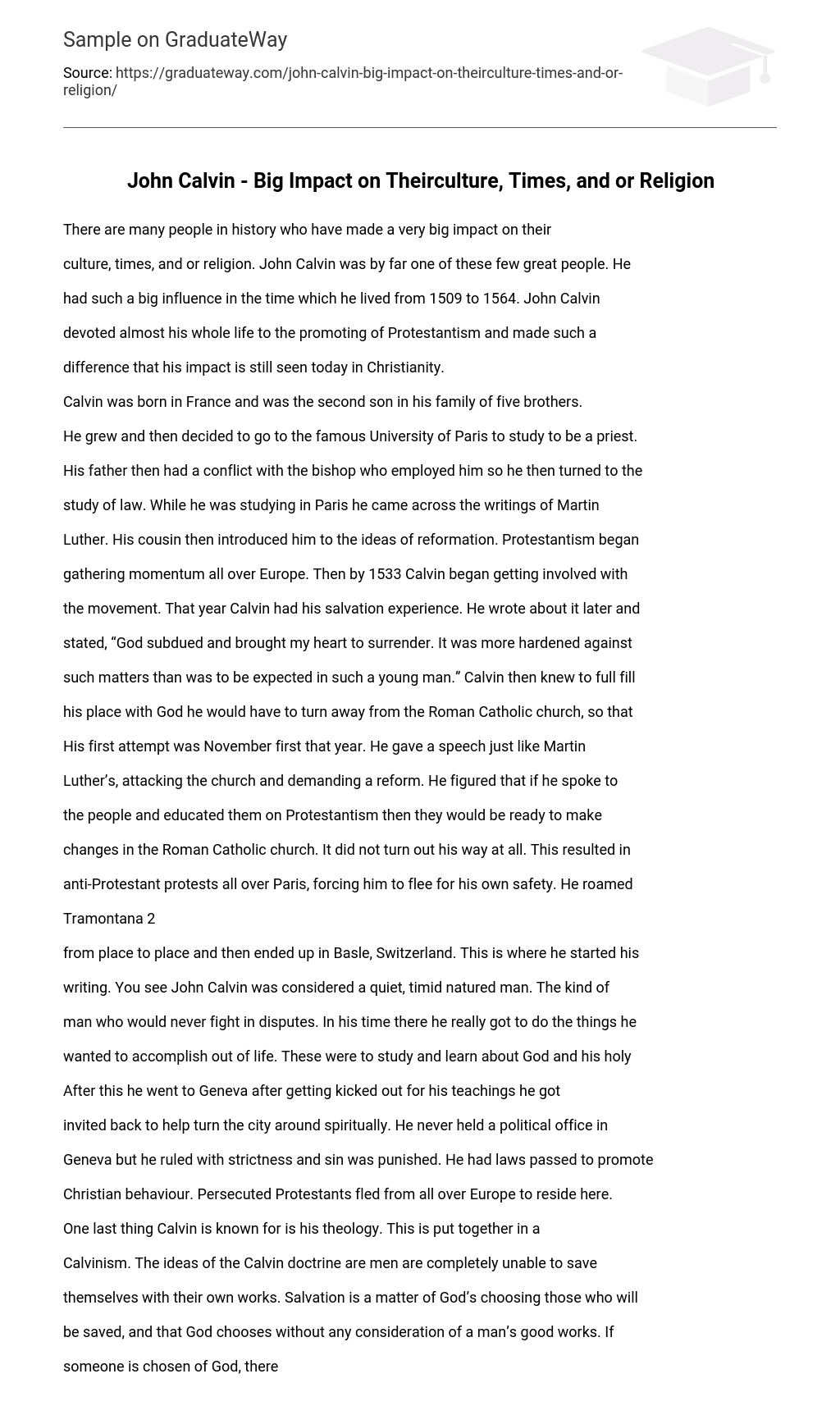Among the countless individuals who have greatly influenced their culture, era, or religious beliefs, John Calvin definitely stands out. From 1509 to 1564, Calvin’s impact was immense. Throughout his lifetime, he dedicated himself to advancing Protestantism. His remarkable contributions are still evident in Christianity to this day.
Calvin, a French native, was the second of five brothers. He attended the University of Paris with the aim of becoming a priest. However, because his father and his employer (a bishop) had a disagreement, Calvin turned his focus to studying law instead. While in Paris, he became acquainted with Martin Luther’s writings through his cousin’s introduction. This meeting ignited Calvin’s fascination with Protestant concepts that were gaining popularity across Europe.
Calvin became involved with the movement in 1533 and had a salvation experience. He wrote about it, stating that God subdued his heart and brought him to surrender, despite his initial resistance as a young man. Calvin recognized that breaking away from the Roman Catholic church was necessary in order to fully serve God.
In November of that year, John Calvin made his initial attempt by delivering a speech similar to Martin Luther’s. In this speech, he criticized the church and advocated for reform, aiming to educate people about Protestantism and inspire them to initiate change within the Roman Catholic church. However, his plan did not unfold as expected, leading to protests against Protestants in Paris. Consequently, he was forced to flee for his own safety and traveled from one place to another until eventually reaching Basle, Switzerland. It was in Basle where he commenced writing. Notably, John Calvin was renowned for his reserved character and cautious demeanor.
The man was not inclined to engage in conflicts and spent his time accomplishing his desired goals in life. These goals revolved around studying and gaining knowledge about God and his divine realm. Eventually, he relocated to Geneva after being expelled due to his teachings. However, he was later invited back to assist in the spiritual transformation of the city. Despite not holding any political position in Geneva, he governed with severe discipline and enforced punishments for sinful actions. Furthermore, he implemented laws that aimed to encourage Christian conduct. Consequently, persecuted Protestants from various parts of Europe sought refuge in this city.
One last thing Calvin is known for is his theology. This is put together in a Calvinism. The ideas of the Calvin doctrine are that men are completely unable to save themselves with their own works. Salvation is a matter of God’s choosing those who will be saved, and that God chooses without any consideration of a man’s good works. If someone is chosen by God, there was no way they could ever reject Christ or fail to endure to the end of their Christian life. Finally, he taught that Jesus died only for the people whom God chose. This is called limited atonement and is one of Calvin’s most controversial doctrines in Calvinism.
John Calvin was a remarkable individual who pursued his goal of learning about God and his holy word through various means such as his writings, speeches, and his contributions to Calvinism. His dedication to promoting Protestantism lasted almost his entire life and has left a lasting impact on Christianity that is still evident today.





